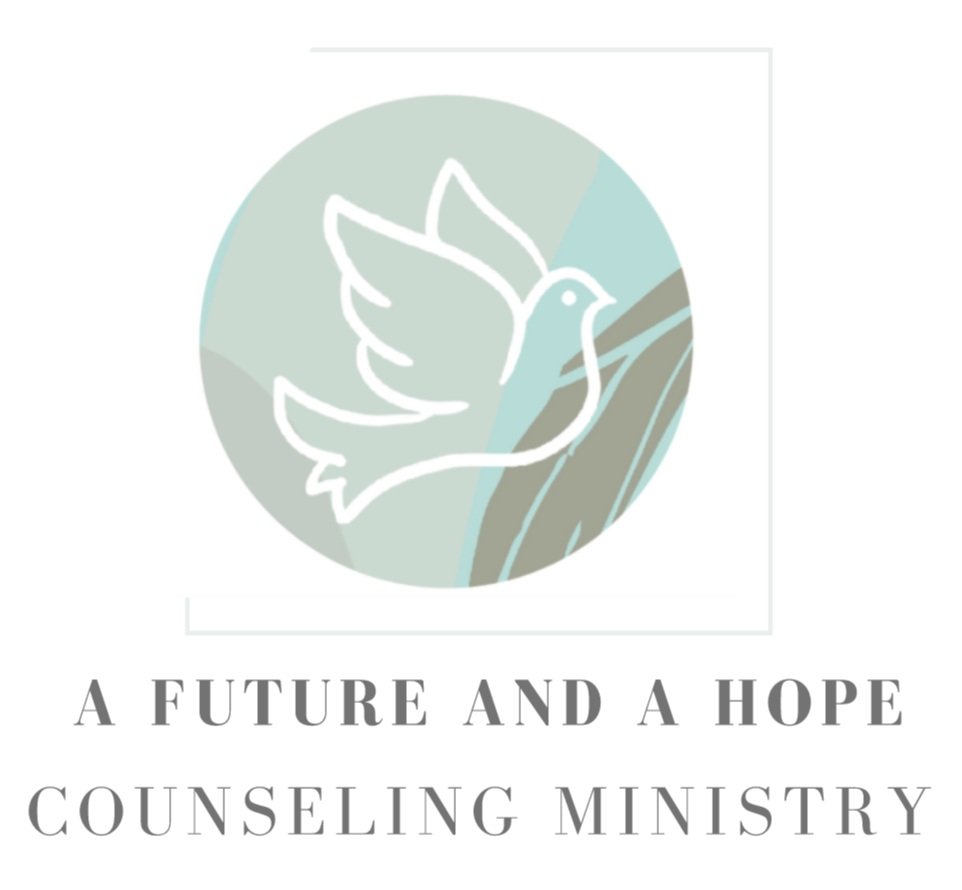Forgiveness is Just the First Step
Forgiveness is Just the First Step
“I can’t believe he cheated on me! I trusted him and he went off and slept with his old girlfriend while I was gone visiting my parents! I feel so betrayed! When I came home and caught him, he said he was sorry and that, as a Christian, I needed to forgive him. He promised never to do it again, but I’m not sure I can trust him. I want to forgive him, but I am struggling with that. Do I have to just forgive him, take him back, and hope that he keeps his word?”
This is not an uncommon scenario in counseling, and the feelings of betrayal are the same whether the couple is married or not. All relationships are based on trust, and when that trust is violated, the relationship is damaged, and in need of restoration. And for Christians, we are commanded to forgive as we have been forgiven. So, does forgiveness make us the doormats of the world, who must keep allowing ourselves to be betrayed? The answer is a resounding, NO!
A good deal of confusion on the topic of forgiveness comes from a failure to understand that the word “forgiveness” carries with it a board meaning, when in fact, it is best to understand it in a more narrow sense. What do I mean?
The process of dealing with a broken relationship is the process of restoration, not just forgiveness. Restoring relationships requires understanding what relationships are comprised of, what can go wrong, and what will have to happen to repair them. Forgiveness is the first step, and a vital one, but it is not what most people think it is, and the other two parts are equally important to understand.
Restoring a relationship is at least a three-part process; forgiveness, reconciliation, and restoration. Understanding the dynamics and interplay of these three is critical, so we will look at each one in order.
I would suggest that we define forgiveness in a very narrow sense as “not seeking vengeance”. “‘Vengeance is mine’, says the Lord, ‘I will recompense.’” (Romans 12:19) This is important, because there is a difference between justice and vengeance, and forgiveness does not preclude justice! If we can understand forgiveness in this narrow sense of “not seeking vengeance” then the rest of the process makes much more sense. So, what are the benefits of understanding forgiveness as “not seeking vengeance”?
First this makes forgiveness a choice that we can make unilaterally; the other person does not need to participate, or even know, that we have forgiven them. Why is that important? Because if we are commanded to forgive, then it must be something which can be accomplished on our own. When someone wrongs me, I can choose to “not seek vengeance” on them; I won’t try to run them over in the parking lot or even seek more subtle forms of revenge. And I can do this even if they don’t think they have done anything wrong or show any kind of remorse. I can truly “forgive as I have been forgiven”. The choice to “not seek vengeance” is a choice I can make.
Secondly, this choice to “not seek vengeance” gives me a clear distinction between forgiveness and reconciliation. To be reconciled about something in the past requires both parties to participate; it is a bi-lateral (two-sided), not a unilateral (one-sided) process. This distinction is critical because it recognizes that while I am required to forgive a person (not seek vengeance), I am not required to be reconciled with them if they are not willing to admit that what they did to me was wrong. There is more to do in the reconciliation part of the process, but this first distinction allows me some “relational” distance from the person who wronged me. Forgiveness does NOT make us the doormats of the world. If a person has wronged me and violated my trust, forgiving them (not seeking vengeance) does not mean I should allow them to remain as close to me as they were, since they have proven to be untrustworthy. To trust those who have proven themselves to be untrustworthy is not noble, its foolish, and poor stewardship on our part. This is the place where the person who says, “Well, I said I was sorry, and promised never to do it again, and you have forgiven me, so everything is back to the way it was” needs to hear, “No so fast!” Trust, once lost, it not so easily regained.
So, I can forgive without necessarily being reconciled with the person who hurt me, until there can be some real reconciliation. The past must be dealt with since that is where the trust in the relationship was lost.
And thirdly, as was pointed out by Lewis Smedes, “Forgiveness is setting the prisoner free, and discovering the prison was you”. If we refuse to forgive, we chain ourselves to an event in the past which we cannot change and we become prisoners of that event— perpetual victims. Do remember that anger is not “an ocean of emotion” that can be drained, it is a catalyst which can reproduce plenty of emotion anew each time. The emotion of anger will dissipate, but it can be endlessly regenerated. And when we continue to do that, we enslave ourselves to a past event which cannot be changed. We cannot change the event, but how we interpret that event can be changed!
There are even more benefits to this narrow definition, but for now, let’s move on to the second part of the process of restoration, namely, reconciliation.
Reconciliation requires both parties to participate. If one, or both, refuses to cooperate, then the process of restoring the relationship stops here. As Christians, if we forgive, we are set free from that past event and can choose to move on (with or without the other person), and we gain a safe relational distance (and perhaps even a safe physical distance) from someone who has violated our trust. However, reconciliation is a bi-lateral (two-sided) process, and both parties must participate, or it will not happen.
Reconciliation is about dealing with the past. This is also an important and more “narrow” definition than is commonly used. The fact is that the process of restoring a broken relationship is difficult and costly work. It is worth the effort, but there will be a tendency to want to short-cut the process and “just get it over with”. But suppressing issues is a poor relational choice, as those issues will tend to resurface somewhere else. To deal with the past, so it may truly be the past for both parties, is worth the effort. And, as Christians, we are required to be willing to be reconciled to those who have wronged us (Matthew 18). But it must be emphasized that we are commanded to be willing, not to achieve reconciliation. We can only do our part. We are not in charge of the process, but just participants.
In dealing with the past, reconciliation will require both parties sharing information and coming to a common understanding of just what was wrong and why it was wrong. There are many parts to this process that I will not try to cover here, but they include contrition, confession, and possibly restitution. In the end, there must be an agreement about what is right and what is wrong, and in particular, what went wrong in the past. Without this agreement, there can be no real closure for the parties. Common cause (justice) requires common ground.
And so, reconciliation is where the past gets dealt with, and the interesting thing is that in the process, both parties can come to more of an agreement, more common ground, about what is right and what is wrong than they had before. These common values are just the kind of solid ground that is needed in relationships. So, in some ways, dealing with the past and coming to a common understanding, provides a basis for renewed risk – otherwise known as trust. Because we should make no mistake, trusting someone is always a risk. The question is, in any given case, is the risk worth it? Strangely, in the process of reconciliation and dealing with the past, we may learn more things about the other person, and ourselves, than we might have otherwise. In any case, reconciliation, carried through, brings some closure to the past that cannot be had any other way. Again, it is worth doing, but both parties must participate or it cannot happen.
Finally, the last step in the process is restoration – where we restore the person to that relational place in our lives that they held before. And this is not commanded of us as Christians at all. Why? Because while reconciliation deals with the past, restoration is about the present and the future. That means restoration is about stewardship – the stewardship God has entrusted to you of your life, and it is poor stewardship to trust people who are not trustworthy. Is the person you reconciled with trustworthy? Maybe, maybe not. If my accountant embezzled $50,000 of mine, and later confessed, paid it back, and was truly contrite about having done it, that is all well and good. However, when he asks if he can go back to being my accountant – well, let’s just say I would need to see an awful lot of evidence that he was a changed person. Well, actually, let’s just say no! We might be good golf buddies, but I think I will move along with a new accountant!
As Christians, we are required to forgive (not seek vengeance) as we have been forgiven, but that is a unilateral decision and one that actually sets me free. However, I cannot, and should not try, to be reconciled to a person unless they are willing to deal with the past with me. I am required to be willing, but not to achieve that reconciliation (since we may never see eye to eye on what was right and what was wrong). I would still have forgiven that person, but we would remain at a relational distance.
And even if I am able to be reconciled about the past, I am in no way required to restore that person to the place of trust they once occupied in my life. Perhaps I can see real reason, through the process of reconciliation, to trust them again, and perhaps not. But while all relationships require trust (and therefore come with risk), God does not want me to trust people indiscriminately. Trust, in any but the most basis measure, must be earned, and if it was violated, the trust will be harder to earn than the first time, and so it should be.
Now, life cannot be reduced to a formula, but we need to have a better understanding of what is going on in relationships and what to do when things go wrong. Restoration is at least a three step process – forgiveness, reconciliation, and restoration, and you can control only the first step. After that, both parties will have to be willing, or nothing good will come of it.
So, in answer to the woman’s question, yes, you need to forgive (not seek vengeance), but you should keep that relational distance until there is real reason to believe that there has been a change of heart, because if there has been no change of heart, there will be no change of behavior. And allowing yourself to be victimized again is not graciousness, it is foolishness.
Kevin

